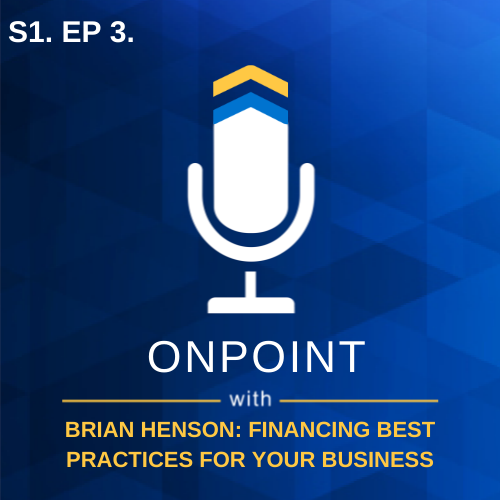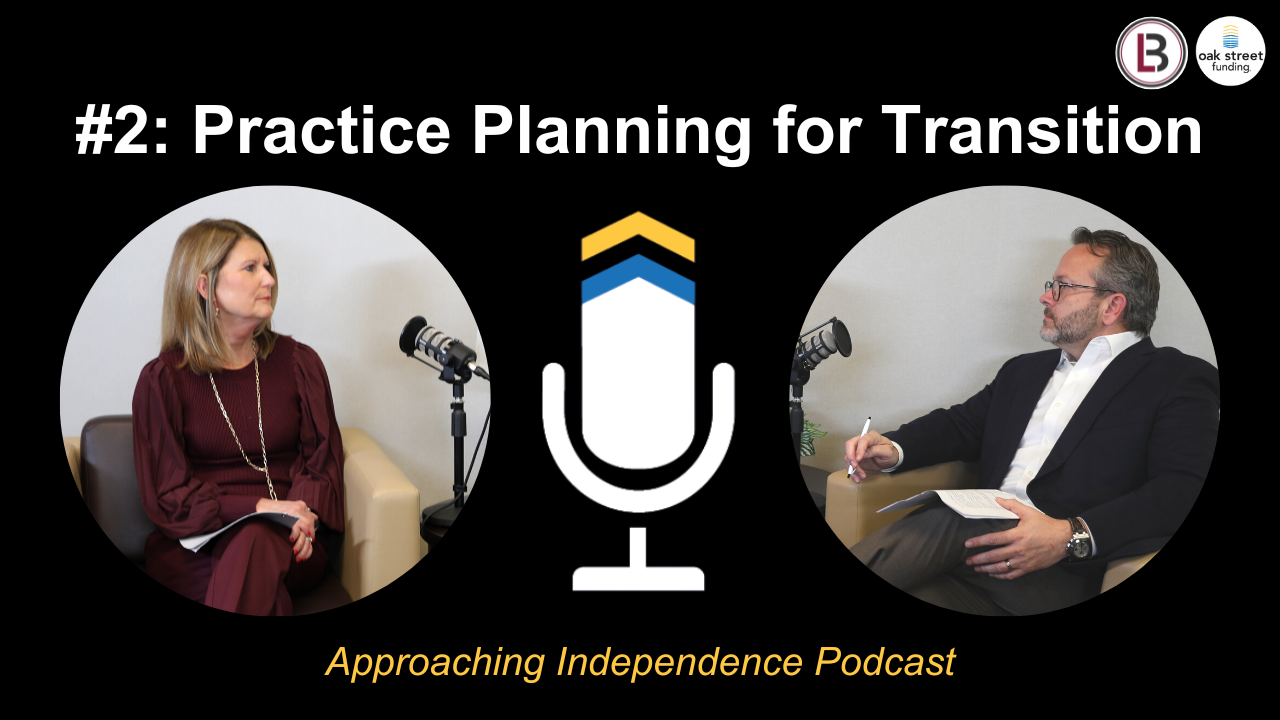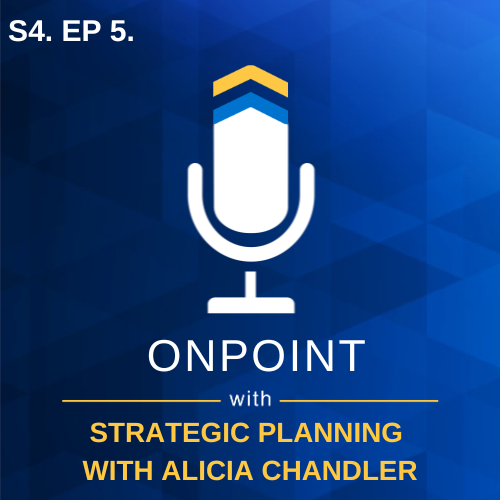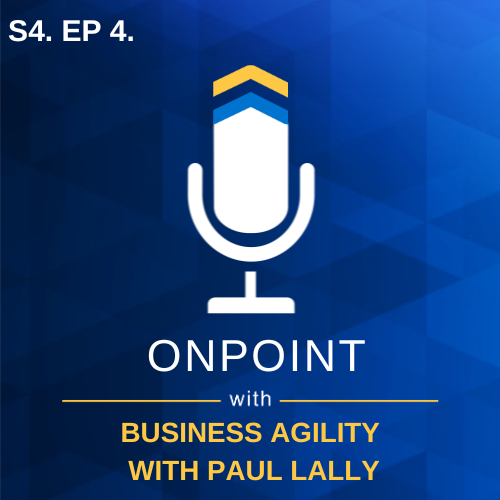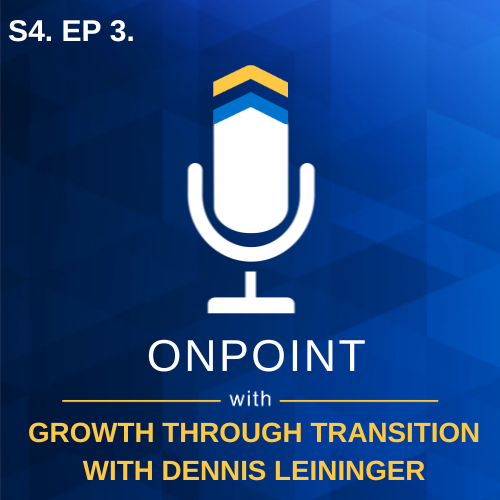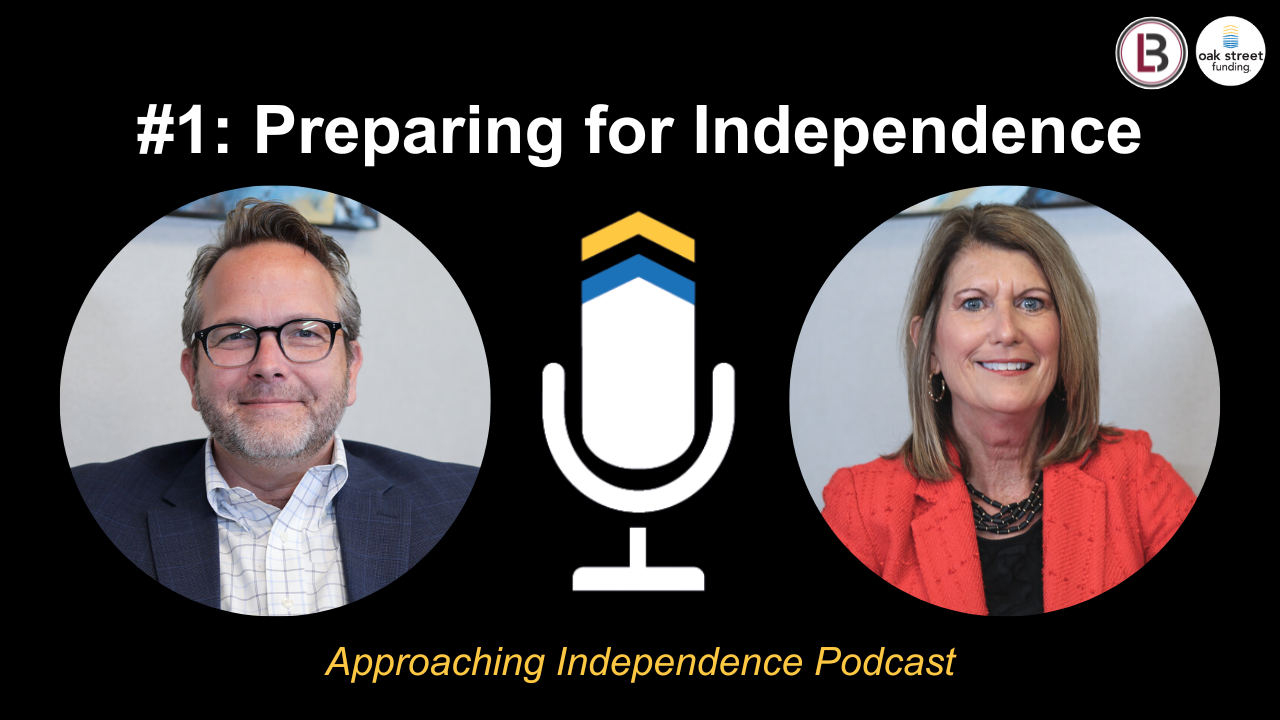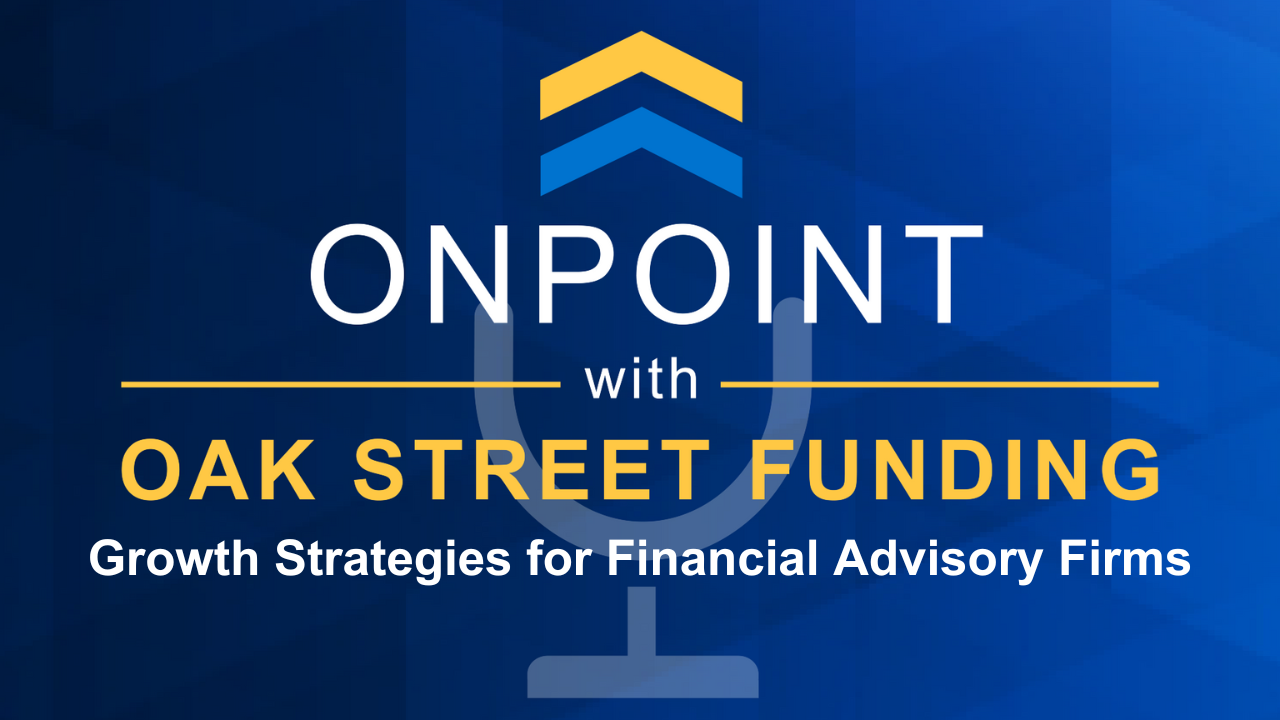S1. Ep. 3 - Financing Best Practices for Your Business with Brian Henson, Director of Underwriting at Oak Street Funding
- 0.5
- 1
- 1.25
- 1.5
- 1.75
- 2
Bridget Haight: Hello, and welcome to OnPoint, a podcast by Oak Street Funding, where we bring research and data-backed insights to dig into the minds of industry leaders to learn how to stand out, navigate and breakthrough this ever- changing industry. I am your host, Bridget Haight, and you can support this podcast by following us on Spotify, Apple Podcasts, on our website, or really wherever you get your podcasts. We will be there hanging out, talking to industry leaders, and ready to empower you to grow your business. Now, let's get OnPoint. Today, we welcome Brian Henson, director of underwriting at Oak Street Funding. Brian has been with Oak Street for nine years and working as an underwriter for 20 years. And over the years, Brian has analyzed thousands of companies and their credit worthiness. Today, we are going to hear Brian's recommended best practices for business finances. Welcome to the show, Brian.
Brian Henson: Thank you, Bridget.
Bridget Haight: Nice to see you.
Brian Henson: It's great to be here. I heard episode three is where the plot really thickens.
Bridget Haight: It's true.
Brian Henson: We develop the character so this is where we're going to get down to business.
Bridget Haight: This is where we really get down to it. Okay, so first question right out of the gate. What do you like best about being an underwriter?
Brian Henson: I think most people peg underwriters as math nerds, but I think that I really cherish the human element and component to what we do. These are all human-jrun businesses still. We don't have robots yet, but they have a business need. I love going out there and actually sitting with them at the table, hearing how they run their business, meeting their management team, talking to their employees, see how they interact. I'm very tactile that way. And so over time, you talk to our borrowers or our clients for so long that you develop these pretty strong bonds and relationships.
Bridget Haight: Right.
Brian Henson: It's almost like getting invited over to someone's house for the holidays sitting at dinner so that's my favorite part.
Bridget Haight: Nice. So what makes a good underwriter?
Brian Henson: Well, a lot of underwriters are very, very different. So I mentioned I like the human aspect of it, but a lot of people are very technical. They're into looking at all the data, and sensitizing the data, looking at concentrations of revenue, looking at financial statements. Really, I think the best thing an underwriter can do is be flexible because you're trying to solve a problem for somebody, whether they're in an acquisition, or an internal succession, or they need working capital. And so actually digging through the numbers, whether you do it in a more personable way or do it behind the desk, and finding a solution for someone, I think that's better than if you were a robot doing it on a yes or no basis.
Bridget Haight: Right. Right. So what type of relationship does an underwriter have with a seller in an acquisition?
Brian Henson: Typically, if you're an underwriter, you're working with a buyer.
Bridget Haight: Right.
Brian Henson: A broker will work with the seller, but we are working in lockstep with the buyers and our borrowers in that diligence process. Collecting information, understanding the synergies of doing an acquisition, and what it takes to acquire that business. What culture fit there is. And so occasionally, we'll ask the seller to sit down and we'll sit down with buyer and seller and just go through some diligence questions. A lot of times the sellers can be a little sensitive. Maybe they haven't told their employees yet that they're doing an acquisition.
Bridget Haight: Right.
Brian Henson: Or considering one. And like I said, or they're working through a broker. We'll ask some questions, maybe a little question/answer session in person, things like that.
Bridget Haight: Okay. So one of the important reasons for solid business financial practices is for business valuation. So can you speak to what appraisers are looking for when they're performing valuation studies?
Brian Henson: Yes. So it's a very hot market now from a multiples perspective because there's a lot of liquidity out there. Private equity firms are just gobbling people up left and right, which has raised the valuation multiples. And so an appraiser when they're looking at your business is basically they're going to benchmark what you do to what they're seeing in the industry. And looking at different quantitative and qualitative factors that will change that benchmark value so a discount rate, or a multiple of revenue or EBITDA. And so they'll look at the same things that an underwriter would, whether the depth and strength of management, the concentration of producing revenue producers, concentration of clients, margins, sensitizing that to the industry market conditions. What does it look like in your industry? And then they'll go through and they'll analyze all those factors, benchmark it against transactions that they've seen in the marketplace today, and then determine your relative value compared to someone else. A lot of times we hear, "Hey, so and so down the street sold or got appraised for 12 times EBITDA," or something along those lines. And it's like, "Well, not every company's the same." And back to my first question, that's what makes my job so great is even though they may be in the same industry, have the same revenue producing factors, every company is different, which is awesome.
Bridget Haight: Right. Because of the human element.
Brian Henson: Correct.
Bridget Haight: Got it. Even if you aren't selling a business, solid financials are important. If you are seeking a loan, what red flags do you see that alert you that a company might be at credit risk?
Brian Henson: Okay. There's a lot.
Bridget Haight: Yeah.
Brian Henson: We'll get into this later, I think, but first and foremost, is working with the right character of individuals. So just listening to people and how they answer questions, how organized they are.
Bridget Haight: Yeah.
Brian Henson: Do they know where their contracts are? How is their corporate governance set up? Do they have signed corporate governance? How organized are their financial statements? Does the balance sheet balance? That's a key one.
Bridget Haight: Oh, yes.
Brian Henson: Yeah. I think that's where I start.
Bridget Haight: Yeah.
Brian Henson: It's just how prepared are you for do whatever your business goals and objectives are?
Bridget Haight: Right.
Brian Henson: I think the more prepared you are, probably the better off. The second thing is experience.
Bridget Haight: Okay.
Brian Henson: Is it a startup entity? Is it an entity that's been around for a while and been through up and down credit cycles? Is there a history of financial performance there? Those are the things we tend to look at.
Bridget Haight: There's a lot.
Brian Henson: Yeah.
Bridget Haight: Okay. If a business owner has poor personal credit, can they still get a business loan?
Brian Henson: Yes.
Bridget Haight: Okay.
Brian Henson: But it's a little bit harder.
Bridget Haight: Oh, okay.
Brian Henson: Again, it ties to the character thing that I just talked about.
Bridget Haight: It keeps coming up.
Brian Henson: There's always a story. Yeah. You'll hear it again, I'm sure. There's always a story behind everything, right? And a lot of people have circumstances that go beyond their control that affect their personal credit score, or maybe there's something that was reported. You had a Kohl's card $10 past due for 30 days and nobody ever told you. There's always reasonings behind it. A score is one thing, but it's what's behind the score, what's driving it down. And then the other thing is if you have a poor credit score, but you've demonstrated that you're able to build up your personal net worth, and your business is super squeaky clean, and you have a long history of financials, then sometimes we'll see that as an anomaly and proceed.
Bridget Haight: Okay. So what happens if a loan request is denied?
Brian Henson: That's a tough one.
Bridget Haight: Yeah.
Brian Henson: There's a couple things. We don't send a nasty Dear John letter to your house so that's good.
Bridget Haight: That's good.
Brian Henson: You're usually working with a team of people, both the underwriters and salesperson when you're requesting a loan. And so typically, if there's a very valid reason for declining a loan, and like I said earlier, there's not a method or a solution that solves the problem, but maybe in a different way than anyone thought. Then typically, it's you got to rip the Band-aid off and just have a tough conversation and say, "Hey, you're not ready for a loan today and here's why." And maybe they know the reasons why, and they just didn't think of it that way or maybe it's new information to them. Then maybe you either give them a solution for solving their business problem or a timeframe of when they could come back and request a loan. And say, "Well, listen, I don't think today you're ready because you're a startup entity. You've been around for six months and you don't have any proven revenue sources."
Bridget Haight: Right.
Brian Henson: "But you come back in a year or 18 months and you've proven things out to us, then we can proceed with a loan." So I like to be transparent in the process. I hope that most underwriters are transparent and you're developing a relationship with someone. If it's not going to work, just sit down and have an honest conversation.
Bridget Haight: And are you the one that actually sits down and has that conversation?
Brian Henson: I will. Yeah.
Bridget Haight: That's great. Okay. Lenders frequently reference the five C's of credit when they're talking about the suitability for a loan. Could you delve into those and how they relate to financial best practices?
Brian Henson: Well, this is like a three hour podcast in itself, the five C's of credit.
Bridget Haight: Okay.
Brian Henson: And luckily I remember them.
Bridget Haight: Okay.
Brian Henson: I'll go through them. Anyone could look them up. Let's see if I can remember them without getting myself into deep trouble here. Character, capacity, capital, conditions, collateral. Do you have those written down?
Bridget Haight: Yes, I do.
Brian Henson: Oh, good. Oh my gosh.
Bridget Haight: You did well.
Brian Henson: I passed. Thank you.
Bridget Haight: You did well.
Brian Henson: That was a tough one. I have two favorites. We already talked about character ad nauseam. I don't know if you've seen the movie Along Came Polly.
Bridget Haight: Yes.
Brian Henson: I think that's the most famous movie of an underwriter, if there ever was. We don't get Ben Affleck the accountant, we get Ben Stiller, but whatever. He's assessing whether someone should be worthy of a life insurance policy.
Bridget Haight: Yeah.
Brian Henson: It's Leland Van Lew and he's jumping off of bridges and all crazy stuff. But anyways, but the end of the day it's down and he says, "Well, this guy's character is worthy of doing this, even if all the other credit factors don't work out." I think that's a little bit overlooked because when you're looking at a request for a loan, it's typically coming in on paper. It's got finance analysis on it, and you're not thinking about that character component. That's why going back to my first question, I like to get out there, and meet the people, and see how they interact, and how they interact with sellers and that kind of stuff. I don't want to say super underlooked. It's one of the most underlooked aspects of underwriting. Then the second one is conditions. And now in the technical term of conditions, it's basically how is the loan structured.
Bridget Haight: Okay.
Brian Henson: But I like to look at it as market conditions. So think about the last 18 to 24 months, what has been going on in the world? It's been the craziest time. You had a COVID pandemic, government shut down, you had trillions of dollars pumped into the economy. You had the Great Resignation, you had highest ever stock markets. And now we're talking about war in Europe.
Bridget Haight: Right.
Brian Henson: And at the same time, you're sitting there and people are still trying to go out, and acquire businesses, and plan for succession, and they need working capital. And so when I think of conditions, it's what is going on in the world that impacts your business, and how does that relate to the credit risk as things are going on?
Bridget Haight: Okay.
Brian Henson: So it's crazy, but it's been working. The businesses are still performing really, really well.
Bridget Haight: Thank heavens.
Brian Henson: For the most part. Yeah.
Bridget Haight: All right. So that was character and conditions.
Brian Henson: Yes. Those are my two favorites.
Bridget Haight: Okay. All right. Those are your two favorites. Well, then I will move on.
Brian Henson: Okay.
Bridget Haight: For businesses seeking an acquisition loan, what is the ballpark percentage for the cash flow ratio?
Brian Henson: Great question. I don't think there is one. So back to the five C's, it's can you service enough debt? Can you generate enough cash flow to service all of your debt? And that includes a senior debt, which would be a loan from a bank or financial institution. Or your subordinated debt or mezzanine debt, which would be if there's a seller note and an acquisition, or someone else has put in capital at a blended interest rate to help you get something done. And really I like to look at on a total debt service base is one-to-one as a 1.1 as a minimum, because that'll leave you a little cashflow left to pay taxes, which everyone loves paying taxes I've heard.
Bridget Haight: Yes.
Brian Henson: I think that'd be one of the earlier podcasts. That's my benchmark but the other thing is capacity, which is the other C is you invert that. And it's how much debt are you putting on a business before you sync it?
Bridget Haight: Okay.
Brian Henson: And so the actual, I don't want to say industry standard, but the benchmark I like to use is three or four times.
Bridget Haight: Okay.
Brian Henson: But if you're putting a three times debt on a business and you can trade for eight to 10 times, you got a lot of cushion there, which is good.
Bridget Haight: Yeah.
Brian Henson: Good for me.
Bridget Haight: Yes. Okay. So debt isn't the only way to get capital and sometimes it isn't the best option. So what are the pros and cons of using debt for growth?
Brian Henson: Well, I actually was able to speak to a bunch of college students on this once. And debt creates the highest return on equity because you use little or less equity in each transaction going forward and equity's typically the most expensive option. The more leverage you can put on a business, typically the higher rate of returns you can get. But the downside to that is you are required, as all lenders do, to secure your business with collateral, whether that's the stock in your business, if you have tangible collateral like real estate, or machinery or that kind of stuff. And then a lot of times, and probably most of the time, you're required to sign a personal guarantee. And so the thing about that is if you are confident in your business and you know that it's a strong business, typically that stuff doesn't matter because you've got faith that, "Hey, I know what's going to happen. This is going to be successful. I'm happily going to sign that collateral over to you." That's the downside of debt. The other options, whether you were talking about mezzanine financing equity, you're giving up some of the corporate governance, a board seat per chance. You're diluting your stocks, you're diluting your returns going forward. Yeah, so debt's obviously it's the cheapest component, even with interest rates going up. And it creates the highest rate of return on equity.
Bridget Haight: What is the best type of loan structure?
Brian Henson: Oh, gosh. There is one. So the way I like to look at it is there's a billion loan structures. Like I said earlier, each company is so dynamic and different, that you have to find a good fit. I think the main principle I like to do is marry the source with the use. So if it's a short-term working capital type of loan, we keep a very short-term structure with the flexibility to pay it up and down over time. Maybe renew it on a yearly basis so we can figure out what the working capital need is for future periods.
Bridget Haight: Okay.
Brian Henson: If it's an acquisition, typically you get those out over 10 years. Your return on the debt is typically much faster than a 10-year repayment cycle, but it gives you time to absorb the business you're buying, implement all the synergies. Sign all the new contracts if you need new contracts signed, integrate the employees, and that kind of stuff and so a 10-year term there makes sense. And if obviously, you're doing a physical asset, like machinery and equipment, it has a 15-year life cycle or a piece of real estate that has a 30-year life cycle, you can go out much longer than that. I think that's probably the main thing when I think of structures. Can we marry term and rate to the repayment cycle of the asset?
Bridget Haight: Sounds good.
Brian Henson: Great.
Bridget Haight: So what are the signs of a strong business that make you more inclined to lend to someone?
Brian Henson: Well, I'm just going to keep on beating that drum, one strong management team.
Bridget Haight: Yeah.
Brian Henson: Experienced management team, someone who's been through different life cycles. It's been a great run for businesses in the last 10 years, but maybe someone that's been through that 2007, '08 mortgage backed security crisis and that kind of stuff. Diversity of revenue sources, so whether that's from a producing employee, a contractual obligation with either an insurance carrier or a custodian, a client mix. How concentrated is the revenue with your client? If you were to lose a client or two, could you absorb it again? And the corporate governance, who's making decisions at your company? Who do you want making decisions? Are your employees happy and engaged, or can they leave and take their business with them at any point in time? So all that to me is tied to that character component.
Bridget Haight: Yeah. How often do you find that a business has all of those elements?
Brian Henson: Businesses are pretty smart.
Bridget Haight: Okay.
Brian Henson: They typically do and a lot of times they're partnering with the right people. They have good attorneys, good accountants, a good banker, right? They can call them up and say, "Hey, I'm thinking of doing X, Y, Z. What's your thought on this and how should I structure it?"
Bridget Haight: Great. So do you have any finance tips for listeners before we close?
Brian Henson: Have a plan, prepare for the plan.
Bridget Haight: Yeah.
Brian Henson: Be organized, partner with the right people. So around here we have something called an accountability partner. So have someone that's a trusted resource, whether that's a business partner, an employee, a tax accountant, a banker that you can bounce ideas off of that has industry expertise that maybe will tell you like it is. The other thing I like to or I'm really high on these days is celebrating success, but also celebrating failure. I actually saw this in a conference.
Bridget Haight: Okay.
Brian Henson: So very few people celebrate failure. But if you don't celebrate failure, then you're not going to learn, and you're not going to innovate, and you're going to quit trying. You're gonna up falling behind other people trying to do similar things.
Bridget Haight: That is so wise.
Brian Henson: Thank you.
Bridget Haight: I love that. I've heard this recently that as we raise our children, that we should be telling them to not be afraid of failure. To encourage them to fail and then look back and see how you can improve that.
Brian Henson: I agree.
Bridget Haight: That's great. So I have an off the cuff question for you.
Brian Henson: Oh gosh.
Bridget Haight: Yeah. I would like to know if your co-workers here at Oak Street Funding could choose a character from the TV show The Office that you are most like, who would it be? Oh, and you cannot choose Michael or Jim.
Brian Henson: Okay.
Bridget Haight: And why?
Brian Henson: Okay. Great question. So people that know me well, probably would say I eat like Kevin.
Bridget Haight: Okay.
Brian Henson: I do crossword puzzles like Stanley. I make up songs like Andy Bernard and I'm weird like Creed. So I'd probably do a hybrid. But if I had to pick one, I'd probably choose between the Nard dog or Creed.
Bridget Haight: I would have to say I'm most like Pam.
Brian Henson: Okay. That's fine.
Bridget Haight: I think I am most like Pam because she's an artist but enjoys listening to other people's ways of life.
Brian Henson: Yeah.
Bridget Haight: Yeah, she loves Jim.
Brian Henson: Yeah.
Bridget Haight: Who doesn't love Jim?
Brian Henson: Right.
Bridget Haight: Well, thank you, Brian, for joining us. It was really lovely talking to you. Thank you all for listening to OnPoint, a podcast by Oak Street Funding, where we bring research and data-backed insights to dig into the minds of industry leaders to learn how to stand out, navigate and breakthrough this ever- changing industry. I am Bridget Haight and tune in next time, wherever you listen to podcasts to hear Jane Saxon of Somerset CPA and Advisors discuss using capital and equity effectively. See you then as we get OnPoint. Don't forget to subscribe and leave us a review.
DESCRIPTION
Today, we welcome Brian Henson, Director of Underwriting at Oak Street Funding. Brian has been with Oak Street for nine years and working as an underwriter for 20 years. Over the years, Brian has analyzed thousands of companies and their credit worthiness. Today we are going to hear Brian’s recommended best practices for business finances, a review of the 5C's of credit, and more. Want to learn more?
Call 844-353-8022 to speak to an Oak Street Funding team member today.
Today's Host
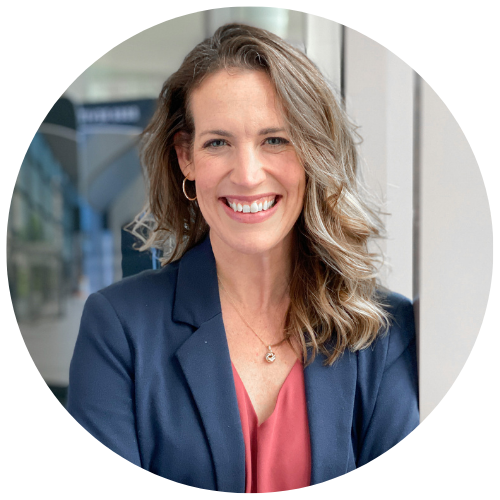
Bridget Haight
Today's Guests


